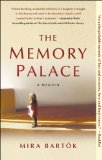Summary | Excerpt | Reading Guide | Reviews | Beyond the book | Read-Alikes | Genres & Themes | Author Bio

From Ragtime and Billy Bathgate to The Book of Daniel, World’s Fair, and The March, the novels of E. L. Doctorow comprise one of the most substantive achievements of modern American fiction. Now, with Homer & Langley, this master novelist has once again created an unforgettable work.
Homer and Langley Collyer are brothers – the one blind and deeply intuitive, the other damaged into madness, or perhaps greatness, by mustard gas in the Great War. They live as recluses in their once grand Fifth Avenue mansion, scavenging the city streets for things they think they can use, hoarding the daily newspapers as research for Langley’s proposed dateless newspaper whose reportage will be as prophecy. Yet the epic events of the century play out in the lives of the two brothers – wars, political movements, technological advances – and even though they want nothing more than to shut out the world, history seems to pass through their cluttered house in the persons of immigrants, prostitutes, society women, government agents, gangsters, jazz musicians... and their housebound lives are fraught with odyssean peril as they struggle to survive and create meaning for themselves.
Brilliantly conceived, gorgeously written, this mesmerizing narrative, a free imaginative rendering of the lives of New York’s fabled Collyer brothers, is a family story with the resonance of myth, an astonishing masterwork unlike any that have come before from this great writer.
Literally walled off, the brothers reinforce Doctorow's motif of isolation, embodying the modern mood of alienation that permeated 20th century culture. A fantastic feat completed through mundane means...continued
Full Review
(686 words)
This review is available to non-members for a limited time. For full access,
become a member today.
(Reviewed by Natasha Vargas-Cooper).
The Collyer brothers of Doctorow's novel, like many of his fictional characters, are based on historical personalities. Though he shifts the time-period up a few decades and re-imagines the brothers, the bones of the narrative can be found in the headlines of decades past.
 The real Homer Collyer (b. 1881) was found dead in his dilapidated Fifth Avenue mansion in Harlem in 1943. Homer and his younger brother Langley (b. 1885) had become infamous in Manhattan for their exorbitant wealth and reclusive lifestyle during the early 1930’s. For close to two decades neighbors and municipal officers tried to have the brothers evicted due to their refusal to dispose of rubbish and pay taxes, but the two remained in their brownstone their ...
The real Homer Collyer (b. 1881) was found dead in his dilapidated Fifth Avenue mansion in Harlem in 1943. Homer and his younger brother Langley (b. 1885) had become infamous in Manhattan for their exorbitant wealth and reclusive lifestyle during the early 1930’s. For close to two decades neighbors and municipal officers tried to have the brothers evicted due to their refusal to dispose of rubbish and pay taxes, but the two remained in their brownstone their ...
This "beyond the book" feature is available to non-members for a limited time. Join today for full access.

If you liked Homer & Langley, try these:

by Mira Bartok
Published 2011
The Memory Palace is a breathtaking literary memoir about the complex meaning of love, truth, and the capacity for forgiveness among family.

by Elizabeth Gaffney
Published 2006
Captures the splendor and violence of New York in the years after the Civil War, as young immigrants climb out of urban chaos and into the American dream.